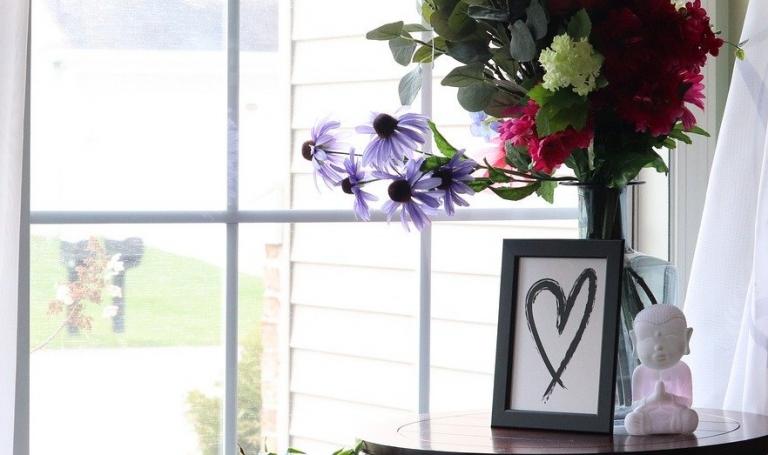For some twenty years now, the metta sutta and metta-bhavana (cultivation of loving-kindness) have been at or near the heart of my practice. Competing practices, such as seeking the very particular truth of matters near and far, large and small; as well as seeking out social justice, rights, and recognition for those ignored and diminished in today’s society, sometimes pull me away from metta in a given moment.
A case in point could be a lively debate on the meaning of a term in Buddhism, such as dharma or karma. These are important discussions, but sometimes the back-and-forth nature of debate causes one (or me, to be specific) to lose sight of the attendant need for compassion and care. And in my work to raise up marginalized people or groups, for instance sharing the experiences of being a black Buddhist in America by Lama Rod Owens, or of being a contemporary nun in a tradition that offers unequal support to women by Ven. Ayya Yeshe, I often face push-back from people who I too easily in tern “other-ize” as an enemy to progress.
But, ideally, all of these work together to create an upward spiral of greater connection to truth, easier love for all, and persistent action toward goodness in day-to-day life.
Returning to the metta sutta, we read:
This is what should be done
By one who is skilled in goodness,
And who knows the path of peace:
Let them be able and upright,
Straightforward and gentle in speech,
Humble and not conceited,
Contented and easily satisfied,
Unburdened with duties and frugal in their ways.
(From accesstoinsight)

Easy enough to comprehend; but a lifetime of work to put into practice.
There is a reason that the Buddha’s teachings are known as going “against the stream.” It is so easy to go with streams of various mob mentalities. The us-vs-them rhetoric, an old stay of authoritarians in politics and religion, seems to almost trigger a positive response. Of course WE all want to be the good ones, the us fighting against a clearly defined them.
But compassion and loving-kindness force us to see the “us” in the “them.”
This doesn’t and shouldn’t mean we become complacent: indeed the opposite. In our quest to stomp out racism, for instance, we can first look at ourselves (it’s in a way easiest, as it’s right here, but it’s also emotionally the most difficult, as we, again, want to live in the narrative of being the good ones). I know I have much work to do on this, as I imagine many of you do too. As we see and work on our own racism, we can better see and work on the racism of those around us – seeing, again, that they are us.
This leads, I think, to more of the “calling-in” direction that many are trying to cultivate in the activist world. As Loretta Ross writes in, “I’m a Black Feminist. I Think Call-Out Culture Is Toxic:”
Call-outs make people fearful of being targeted. People avoid meaningful conversations when hypervigilant perfectionists point out apparent mistakes, feeding the cannibalistic maw of the cancel culture. Shaming people for when they “woke up” presupposes rigid political standards for acceptable discourse and enlists others to pile on. Sometimes it’s just ruthless hazing.
We can change this culture. Calling-in is simply a call-out done with love. Some corrections can be made privately. Others will necessarily be public, but done with respect. It is not tone policing, protecting white fragility or covering up abuse. It helps avoid the weaponization of suffering that prevents constructive healing.
Calling-in engages in debates with words and actions of healing and restoration, and without the self-indulgence of drama.
Her words are echoed across progressive culture. In a time of incredible stress and uncertainty, we are often expending untold energy policing one another reactively. That is not to say policing shouldn’t happen, but simply that we also must take the time–perhaps a lot of it–to ensure that our own motivation is love.
Again, no easy task. Contemporary culture and the ways that debates and discussions are structured by some make it seem impossible: the only way “we” can win is to hate the other or to destroy them. The Buddhist teaching, as far as I understand it, disagrees.
What we need to destroy is ignorance, greed, and aversion. We can do this most easily in ourselves first through diligent practice. And we can and should extend the practice to hold, and at times perhaps even confront, others from a place of love.












